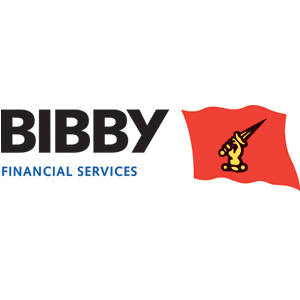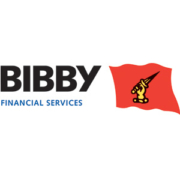Three in ten Irish SMEs have written off bad debts over the past 12 months with €21,076 the average amount lost – new research from Bibby Financial Services

- One fifth (21%) of Irish SMEs say they don’t have the cashflow they need to grow while 11% don’t have enough cashflow for day to day activities
- Rising interest rates, the cost of borrowing and access to finance are top concerns for Irish businesses
- Nearly half (48%) of Irish SMEs say they are now more likely to use external finance than they were before the Covid-19 pandemic
Three in 10 (29%) SMEs in Ireland had to write off bad debts in the past twelve months according to a recent survey by Bibby Financial Services, Ireland’s leading independent provider of financial funding solutions to SMEs.
The research shows that the average figure written off by Irish SMEs was €21,076, up from €18,543, in the past 12 months. This average figure jumps significantly for the wholesale sector, which records the highest average amount written off at €47,000.
The survey results also show that interest rates and the cost of borrowing are top concerns for over a quarter (27%) of Irish businesses. Meanwhile, 19% are concerned about access to finance, with this figure rising to 24% for those operating in the construction sector.
Furthermore, supply chain uncertainly is also restricting cashflow, with 28% of those surveyed stating that customers have entered administration, while 34% say some of their suppliers have entered administration.
As a result, it is no surprise that over one fifth (21%) of companies say they don’t have the cashflow they need to grow. A further 11% say they don’t have sufficient cashflow to operate effectively on a day-to-day basis.
On average, businesses believe €108,580 is the right amount of funding required to support their business. The top uses for this funding are:
- Domestic growth and expansion (44%)
- International growth and expansion (28%)
- Funding day-to-day operations (23%)
Almost half (48%) of Irish SMEs also say they are more likely to use external finance now, compared to before the Covid-19 pandemic. This figure rises to 54% for those in the Wholesale sector and 63% for those in the Transport and Haulage sectors. In addition, the figure also rises to 55% for those importing goods and 63% for those exporting.
The most prominent forms of external finance that Irish SMEs consider are:
- Business loans (51%)
- Government loans (26%)
- Overdrafts (26%)
- Credit cards (25%)
- Invoice Financing (21%)
Positively, it’s worth noting that those considering Invoice Financing has risen by 5%, showing that more long-term sustainable forms of finance are being sought by business owners. Unlike a loan, credit card or overdraft, Invoice Finance does not involve borrowing any money and incurring ongoing monthly repayments. Instead, Invoice Finance offers businesses access to money outstanding from their unpaid invoices, helping them to access income they have already earned but not yet received. In addition to assisting with cashflow, the capital unlocked from an Invoice Finance facility can be used for a variety of activities such as training, staff salaries, equipment supplies and premises, as well as growth scenarios such as Mergers and Acquisition activity.
Mark O’Rourke, Managing Director at Bibby Financial Services, says that with the traditional banking landscape in Ireland changing dramatically over the past few years, there is now a significant range of alternative financial institutions who offer a host of reliable solutions.
“Alternative finance options, such as invoice finance, are now playing a more important role in a sustainable funding landscape. As alternative funding solutions provide certainty of payment and more sustainable sources of liquidity, they are often far more suited to the needs of an SME than traditional lending options. They also don’t involve borrowing any money – which is often a key factor for SME’s as they simply don’t want to take on term debt or cash flow loans that will result in monthly repayments for years to come. This hesitancy to take on debt is creating what we are calling ‘an investment gap’ at SME level in Ireland. This is resulting in a barrier to growth for Irish SME’s and what many companies don’t realise is that alternative funding solutions can help SMEs to overcome this barrier.
While there is no one-size-fits-all solution to navigating the uncertain outlook ahead, by ensuring SMEs have access to a range of financing options that provide sustainable working capital and cashflow, they will be able to overcome any challenges and take advantage of any opportunities that arise over the remainder of 2023.”
For more information about Bibby Financial Services Ireland, please visit: www.bibbyfinancialservices.ie
Find us on LinkedIn or follow us on Twitter @BibbyFinanceIE



